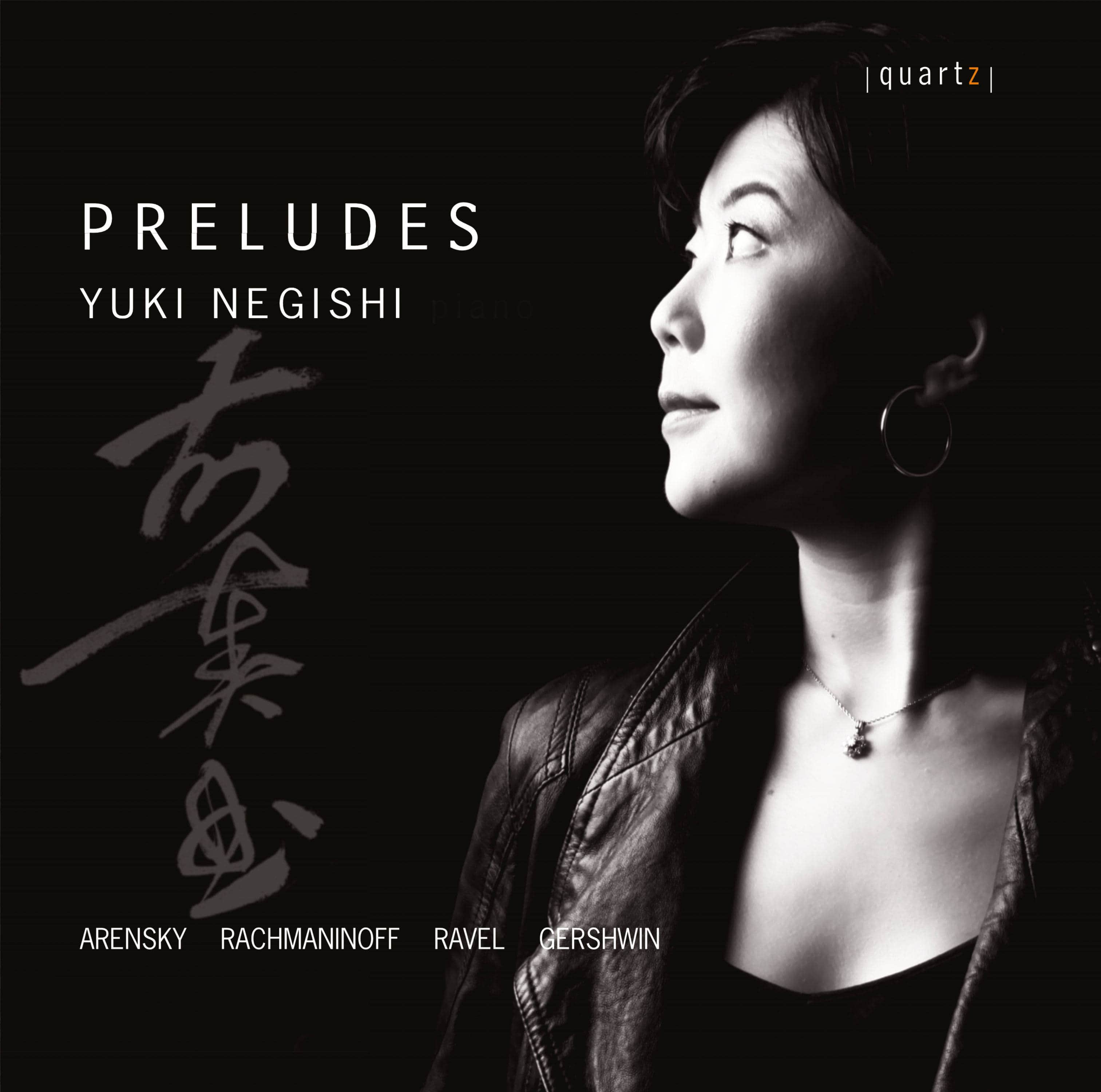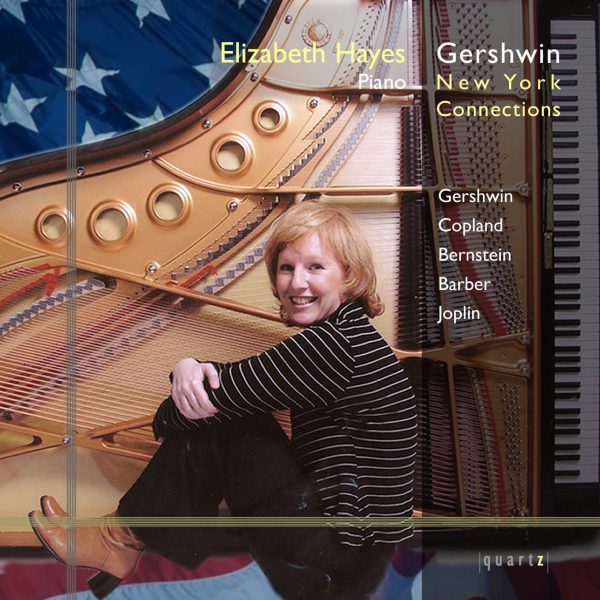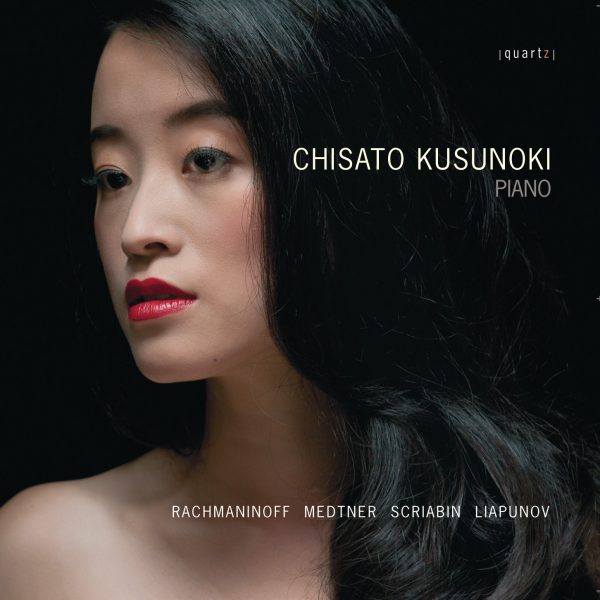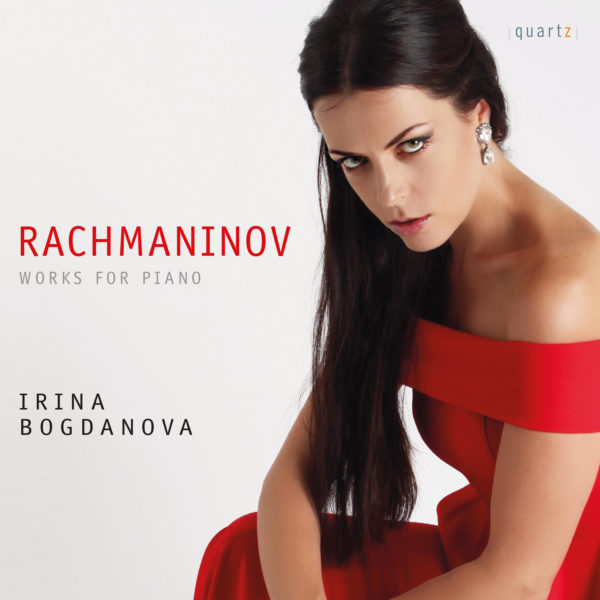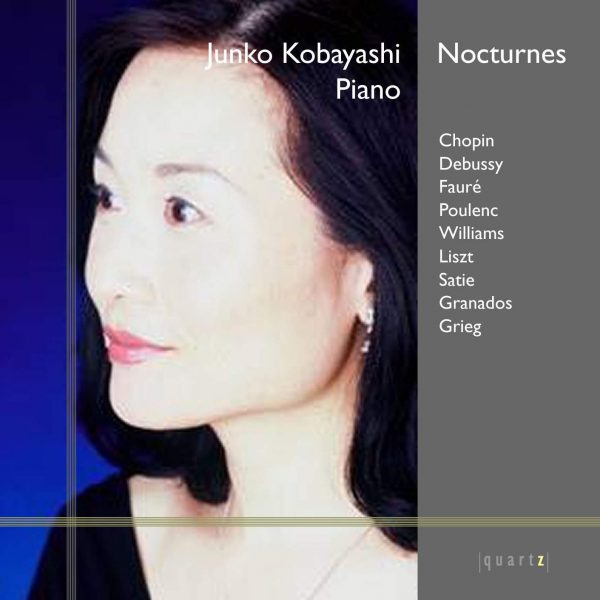Preludes
Price range: £7.99 through £16.99
This album features Preludes from four composers, who were all accomplished pianists and composers, and who interacted and influenced each other. Sergei Rachmaninoff (1873–1943) entered the Moscow Conservatory as a young man, and one of his teachers there was Anton Arensky (1861–1906) who taught harmony. While Rachmaninoff’s style and compositions were significantly influenced by other composers like Tchaikovsky, it is likely that Arensky had some impact on his musical development, especially in his earlier works. There is very little documented about Arensky, although his compositions are pleasing to the ear and deserve to be played and heard more often. It is not clear when his 12 Preludes Op.63 were composed, which are comprised of 12 very short pieces and idiomatically Chopinesque. George Gershwin (1898–1937) and Maurice Ravel (1875–1937) had a mutual admiration for each other’s works. Ravel was familiar with and appreciated Gershwin’s jazz-influenced compositions, while Gershwin showed deep respect for Ravel’s music by approaching Ravel with the desire to study composition under him.
About This Recording
This album features Preludes from four composers, who were all accomplished pianists and composers, and who interacted and influenced each other. Sergei Rachmaninoff (1873–1943) entered the Moscow Conservatory as a young man, and one of his teachers there was Anton Arensky (1861–1906) who taught harmony. While Rachmaninoff’s style and compositions were significantly influenced by other composers like Tchaikovsky, it is likely that Arensky had some impact on his musical development, especially in his earlier works. There is very little documented about Arensky, although his compositions are pleasing to the ear and deserve to be played and heard more often. It is not clear when his 12 Preludes Op.63 were composed, which are comprised of 12 very short pieces and idiomatically Chopinesque. The set starts in A minor, then follows chromatically down to G major (No.6), then starts again from E major, finally ending like a grand Nocturne in D flat major. Rachmaninoff’s 10 Preludes Op.23 were composed between 1903-1905, after finishing his studies at the Moscow Conservatory and during a period of psychological and financial difficulty. The fifth Prelude in G minor was composed first in 1901, and the remaining preludes were completed after Rachmaninoff’s marriage to his cousin, Natalia Satina: Nos. 1, 4 and 10 premiered in Moscow on 10 February 1903, and the remaining six were completed soon after. No.6 was written in one day when his daughter Natasha was born on 19 May 1903 (“it really just poured out of me all at once on the day my daughter was born”). Together with his famous Prelude Op.3 No.2 in C sharp minor, which he composed at the age of 19 in 1892, and the Op. 32 set of 13 Preludes composed much later in 1910, he wrote 24 Preludes in total, in all 24 major and minor keys, following the footsteps of his influential predecessors, Bach and Chopin.
George Gershwin (1898–1937) and Maurice Ravel (1875–1937) had a mutual admiration for each other’s works. Ravel was familiar with and appreciated Gershwin’s jazz-influenced compositions, while Gershwin showed deep respect for Ravel’s music by approaching Ravel with the desire to study composition under
him. Ravel, with a genuine interest in American jazz, recognised Gershwin’s unique talent and voice, but politely declined, where he commented with the following, “Why become a second-rate Ravel when you can be a first-rate Gershwin?” Gershwin subsequently visited Ravel in France as colleagues, and the two spent some time together, sharing conversations about music, jazz, and their respective approaches to composition. Ravel’s interest in jazz is reflected in works, such as his Piano Concerto in G and his Violin Sonata in G. The A minor Prelude composed in 1913 is a pavanesque miniature gem, written as a conservatory sight-reading test. Gershwin’s Three Preludes were originally conceived as 24 Preludes titled “The Melting Pot”, but by the time of publication in 1926, only three remained. The first two Preludes have strong flavours of jazz, particularly the “blues”, although completely contrasting in character (the first Prelude is punchy and quick, the second melancholic, lyrical and slow). Gershwin referred to the third Prelude as “Spanish”, but I find this amusing and curious. Rachmaninoff (after emigrating from Russia) and Gershwin lived in the United States during the same period, and there is evidence to suggest that they had mutual admiration for each other’s work; Rachmaninoff reportedly especially admired Gershwin’s “Rhapsody in Blue”, and this influence can be seen in, for example Rachmaninoff’s Fourth Piano Concerto. They met on a few occasions, one notable instance being at a party in Los Angeles where they played piano together. Gershwin and Ravel died in the same year, in 1937 in New York City and Paris, respectively. Rachmaninoff followed 6 years later in Beverly Hills. Gershwin was only 38.
Yuki Negishi
Yuki Negishi has established herself as a pianist of rare poetry, passion and virtuosity, equally at home as an adjudicator, educator and researcher, captivating audiences wherever she performs around the world. Yuki has already performed in over 700 concerts in the UK alone, including many of the most important halls and festivals, and regularly performs about 30 concerts a year as recitalist, concerto soloist and chamber musician in countries such as the Netherlands (Concertgebouw), France, Germany, Switzerland (Tonhalle), Italy (Festival di Londra, Blanc European Festival, Artepiano International Festival), Romania, Japan, China, Bangladesh and the USA. She has been broadcast on BBC Radio 3, Scala Radio, Xray FM, ITV, Channel 4, Dutch, Polish, Romanian and French television and radio. She has released her debut CD through the Quartz label in May 2022, including music by Chopin, Kapustin, the world-premiere recordings of Melanie Spanswick’s “Enigma” written for Yuki in 2019, and Robert Mitchell’s “Our Hearts Dance the Infinite (As the Giant Puya Blooms)” to unanimous reviews from Gramophone, International Piano Magazine and Record Geijutsu Japan. Another CD has been released in conjunction with the Swiss Broadcasting Corporation of unrecorded works by the Japanese composer Koichi Kishi, with violinist Yukiko Ishibashi in October 2022, by the Japanese label Mittenwald. She has also released a DVD from Sound Techniques in conversation with BBC presenter Andrew Green.
Born in Tokyo, Japan, Yuki Negishi started playing the piano at the age of 5 in New York City. At the age of 10, she was accepted to The Juilliard School of Music Pre- College Division as an honorary scholarship student. Yuki has since worked with such eminent figures as the late Takahiro Sonoda, Christian Zacharias, the late Irina Zaritskaya, Dominique Merlet, Dr Peter Katin and Murray Perahia at the Toho Gakuen School of Music, Amsterdam Conservatory and the Royal College of Music where she obtained her Masters Degree with distinction and Artist Diploma in 2006. At the age of 16, she was the youngest prize-winner at the Takahiro Sonoda Piano Competition and she was awarded the 2nd prize at the 2000 International Jeunesses Musicales Competition in Bucharest. Since coming to the UK in 2001, she has additionally won no less than 10 coveted prizes at the RCM and elsewhere. As a chamber musician, Yuki has collaborated with members of the London Mozart Players, the Orchestra of the Swan, Royal Philharmonic Orchestra, the Philharmonia Orchestra, Japan Philharmonic, the Zurich Tonhalle Orchestra and the Royal Concertgebouw Orchestra, and regularly performs with the award-winning London Myriad Ensemble and the multi-award-winning violinist, Elly Suh, among others.
Track Listing
Anton Arensky
Twelve Preludes, Op. 63
- No.1 in A minor (Allegro)
- No.2 in A major (Moderato)
- No.3 in G sharp minor (Andante con moto)
- No.4 in A flat major (Allegretto)
- No.5 in G minor (Allegro)
- No.6 in G major (Andantino)
- No.7 in E major (Andante)
- No.8 in E flat minor (Allegro)
- No.9 in E flat major (Allegro)
- No.10 in D minor (Adagio)
- No.11 in D major (Allegretto)
- No.12 in D flat major (Allegro moderato)
Sergei Rachmaninov
Ten Preludes, Op. 23
- No.1 in F sharp minor (Largo)
- No.2 in B flat major (Maestoso)
- No.3 in D minor (Tempo di minuetto)
- No.4 in D major (Andante cantabile)
- No.5 in G minor (Alla marcia)
- No.6 in E flat major (Andante)
- No.7 in C minor (Allegro)
- No.8 in A flat major (Allegro vivace)
- No.9 in E flat minor (Presto)
- No.10 in G flat major (Largo)
Maurice Ravel
- Prelude in A minor, M.65 (1913)
George Gershwin
Three Preludes
- No.1 in B flat major (Allegro ben ritimato e deciso)
- No.2 in C sharp minor (Andante con moto)
- No.3 in E flat minor (Agitato)
